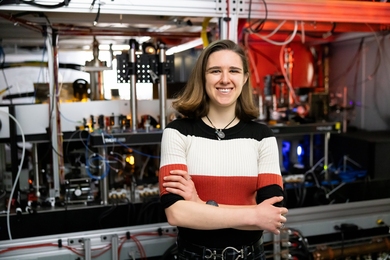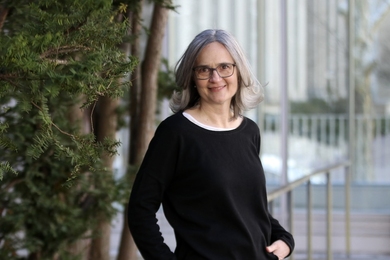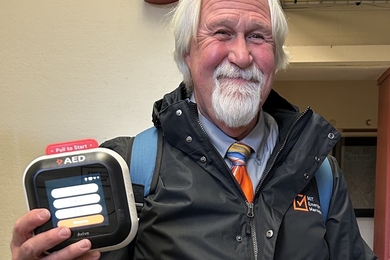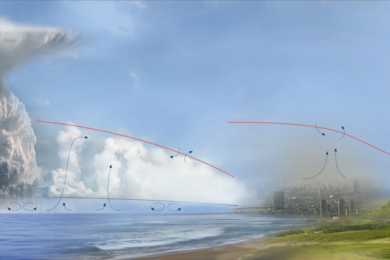Most college homecomings feature a big football game, a rally and a reunion of classmates.
However, several MIT graduates are returning to campus for a different kind of gathering--also featuring big plays and sidelines. Fourteen MIT theater alumni, whose attendance spans 15 years at the Institute, return to present "Trials, Tribulations, and Triumphs," an evening of interlocking scenes and monologues about relationships.
The show, which includes scenes by many world-famous playwrights, will be performed on Sunday, June 16 at 3:30 p.m. and 7:30 p.m. in Kresge Little Theater.
The reunion was initiated by alumni who miss MIT's theater scene. Last November, a trio of senior lecturer Michael Ouellette's former students attended a performance of his "Coyote's Opera."
"We cornered him about doing a reunion show" recalled Paulo Pereira, who graduated in 1995 with a degree in humanities and engineering. "Michael promised that if we delivered the alumni, he would direct the show."
This led to a massive e-mail campaign in which Pereira and fellow coordinators sent a preliminary announcement to "everyone they could think of," according to Ouellette. "The people who are coming are just the ones who could come. Everyone wanted to come, but many couldn't," he noted.
"It was important to all these returning alumni to replicate the experience they had here at MIT," said Ouellette, who selected the scenes and cast them once he had a list of participants.
"Our main draw is the desire to recall the spirit and energy we enjoyed so much when working together," said co-coordinator Richard Davis, who received the S.B. in computer science and engineering and the M.Eng. in electrical engineering and computer science, both in 1995. "I haven't been tempted to do theater professionally, but I still love doing theater at MIT," he added, citing preference of theatrical "process" and character exploration over financial or critical payoff.
Franz Elizondo Schmelkes, who has worked in professional and community theater since graduating in 1994, agreed, saying that "MIT theater is a search for perfection in the process versus simply the final product ... MIT might not create the greatest artist, but the dedication and intensity of the work of an MIT theater artist surpasses anything I have been exposed to."
Calling his first involvement in nonacademic theater "a bit of an artistic culture shock," Elizondo Schmelkes said most directors devote their time to the mechanics of blocking and traffic control, leaving the development of the scene to the actors. "If the actors are good, results are appropriate, but often the experience remains empty," he said.
"That's why I wish to be a part of theater at MIT again," Elizondo Schmelkes continued, adding that it's also the people who are involved in the reunion project that made him want to travel 3,000 miles from San Diego.
"MIT theater arts was (and, I hope, still is) a small, close-knit community and in a very real sense, it's also a family," Pereira said, noting that his MIT theater relationships have shaped his subsequent life and helped him form a sense of self. "The theater arts program served as a framework in which to explore my humanity and humanity as a whole."
With cast members arriving from as far away as Paris, rehearsal time is short. Those who live in the Boston area have been working for a few weeks, but the out-of-towners will have an extremely tight schedule.
Due to the way the show is being assembled, said Ouellette, they will rely on simple technical components. The production will be minimal, with no elaborate costumes or sets except for a representational piece or two. "The idea is to focus on the acting and the actors, which is where I think it belongs," he said.
"Trials, Tribulations, and Triumphs" includes scenes by Shakespeare, Shaw, Sheridan, Coward, Shanley, Rudkin, Chekhov and Brecht. For more information, e-mail Paulo Pereira at oluap@alum.mit.edu or click here.
A version of this article appeared in MIT Tech Talk on June 12, 2002.






